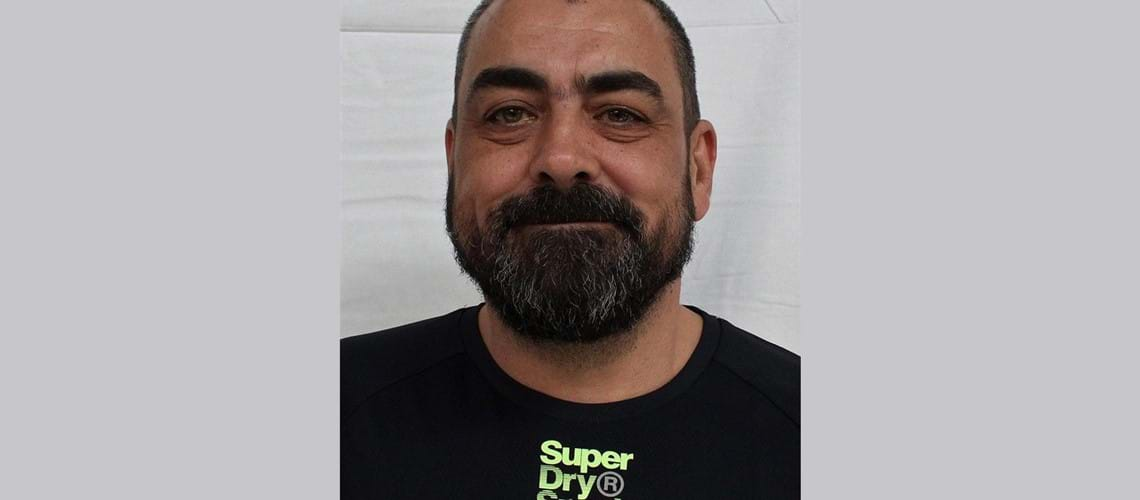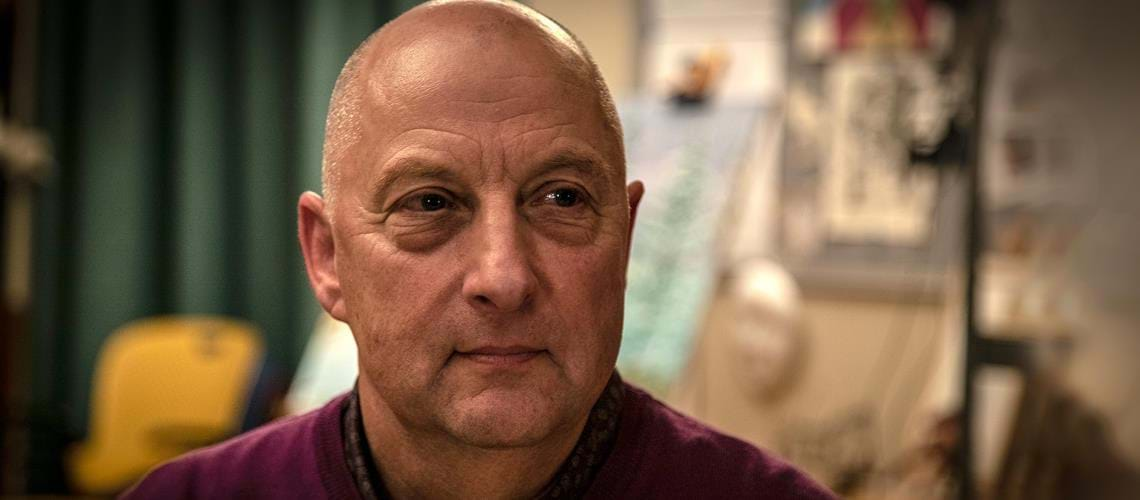
Suicide bomber ended my career: “For a long time I thought I could fix myself”
Andrew Taylor struggled to adapt to civilian life when
In 2008, Royal Army Medical Corps officer Andrew suffered serious back wounds when a suicide bomber detonated a device next to the vehicle he was in. Sent home for extensive treatment and rehabilitation, Andrew was eventually discharged in 2013.
“I lost my sense of identity, my career, the friendships I’d made and the excitement that my job had given me. I felt that I’d gone from hero to zero.”
Despite feeling this way, Andrew didn’t initially reach out for mental health support. Family and friends were worried about him – he was withdrawn and at times argumentative. Unable to stand for long periods of time because of the injury to his back, his social life had become virtually non-existent.
“I was cocooned in my own little bubble. I knew I was heading down a slippery slope, I felt depressed and frustrated. I’d gone from being a serving soldier, on top of my game and doing a job I loved to being someone who was effectively broken with no feelings of worth or self-purpose.
“But for a long time, I thought I could fix myself. When those around me told me I’d become withdrawn I didn’t listen. I just thought I was dealing with things my way. Things came to a head when Andrew realised that his reaction to an everyday situation was out of proportion.
“One day I was filling my car with petrol and I overheard a conversation between two strangers. I felt an intense anger building inside me about the way they were talking because
Andrew admits that it took courage to ask for support, worried that it might be seen as a sign of weakness. Nonetheless, he made a phone call to Help for Heroes. Counselling sessions established that he was suffering from an adjustment disorder. His diagnosis meant that Andrew could finally start to make sense of the way he’d been feeling. He’d served for 24 years and the military way of life – its values and codes of conduct – were ingrained in him. Struggling to make the transition to back into civilian life had left him feeling alienated and frustrated. With the support of a counsellor, Andrew was able to start making sense of his issues.
“It was time for a change. I’d sat there deteriorating for four years thinking I could cope by myself and that I was the answer to this problem and I just had to figure it out. But it didn’t happen for me until I sought help and assistance.”
With the right psychological support to come to terms with the effect of his injury, Andrew has been able to take up
Andrew has learnt too that the anger and frustration he felt at the loss of his military career was normal. “Counselling has helped me to understand that I was going through a bereavement. Now, I’m in a much better place. Reaching out for help has changed me as a person. I’ve had to adjust some of my aspirations, but I’m getting there.
“I’m now looking forwards rather than backwards and that’s very important in a recovery journey. I’m looking
His message to anyone struggling is clear: “Make that decision to step forward and ask for
According to a recent survey commissioned by Help for Heroes, 30% of Veterans with psychological wounds say they have never reached out for support. For those that have, it takes an average of four years before they ask for help.
Help them to come forward sooner and help us to call time on mental health stigma at CutTheClock.com.
Figures, unless otherwise stated, are from YouGov Plc.
Help for Heroes helped 4,194 additional wounded, injured and sick individuals between Aug 2017 and Aug 2018 with their physical and mental wellbeing. Of these, 881 accessed support from our Psychological Wellbeing service.
Outcomes show that depression, anxiety and anger symptoms all reduced, and anger management improved,
All of the courses and activities delivered by Help for Heroes are designed to benefit the psychological and physical wellbeing of wounded, injured and sick Veterans and Service Personnel



